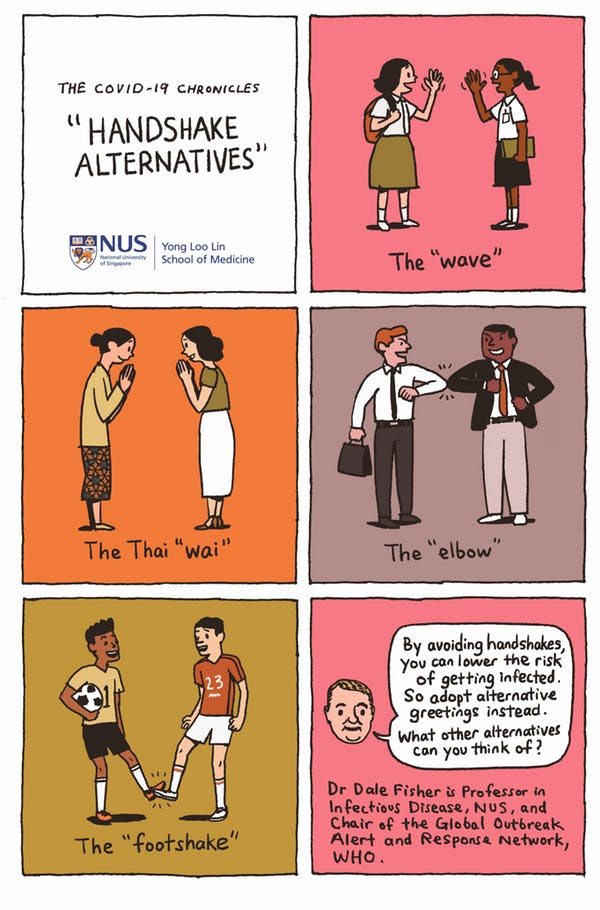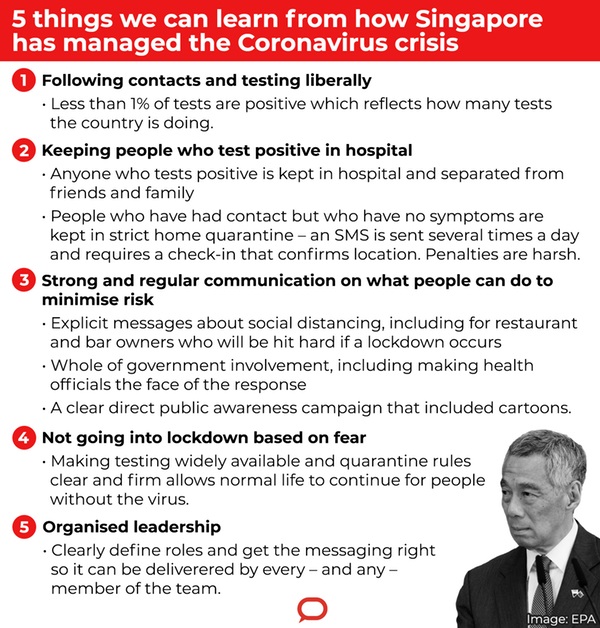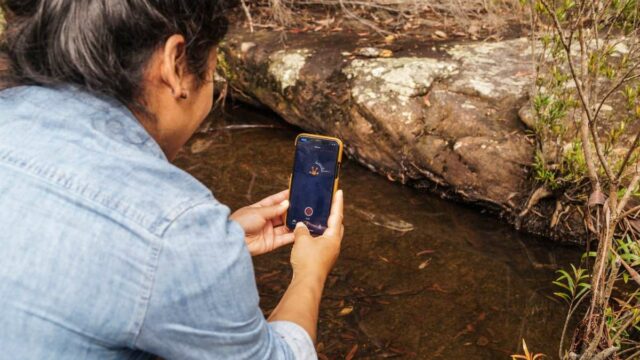Why should we bother testing for COVID-19? And what difference does self-isolation make anyway? The Australian Academy of Science answers these questions, along with more, in two short videos.
Reflect on the measures Singapore has taken during this pandemic and consider what could be learned to make Australia more successful in the future.
Video Length: 3:17 mins and 1:55 mins
Word Count: 329
Professor Raina MacIntyre from UNSW Sydney answers questions such as:
- Why testing is important?
- When should you get tested?
- How long does it take for results?
- Why is testing important?
- How has testing helped other countries?
- How does Australia compare at present?
Professor Damian Purcell from the Doherty Institute discusses the following:
- How does self-isolation help?
- How long should self-isolation last?
- Why is it important to slow the spread?
- How can transmission be slowed?
- What are the challenges?
These videos were published by The Australian Academy of Science.
We can learn a few lessons from Singapore’s response to COVID-19
The videos above question how Australia is coping with this pandemic and as scientists, we need to learn from other countries’ successes. Singapore is one of the few countries which reacted quickly and effectively when the news about COVID-19 broke. It currently has zero deaths and its strategies are being adopted by many other countries. So what have they actually done?
From regular and consistent communication to strict home quarantine measures – there are a few key takeaways from how Singapore is handling COVID-19.

-
- Plan – Singapore was ready before the outbreak even occurred because of the SARS outbreak of 2002-03. It was aware then that its infrastructure wasn’t ready for an outbreak of this kind. So, in the years since, isolation hospitals were built, more negative pressure rooms were created and legislation was put in place.
-
- React – On December 31, when the world first became aware of coronavirus in China, Singapore started to get prepared. By the time the World Health Organisation declared a public health emergency at the end of January, it was ready. In February, Singapore made it clear again this virus had the potential to have major health, social and economic consequences. They knew that because they observed what happened in China. The virus brought a country of 1.4 billion people basically to its knees.
-
- Isolate – People who tested postive for COVID-19 were kept in hospital and were not allowed back into the community to prevent transmission.
-
- Implement – Tests are done liberaly and whilst waiting on results, people are required to home-quarantine, with phone apps monitoring location and random government spot checks. There are harsh penalties for those not who don’t comply.
-
- Communicate – There is clear and consistent communication throughout the communities, and there has been from the beginning of the outbreak. Cross-ministerial task forces are working together to solve problems, it is not just an issue for the health department.

This information came from an article published by The Conversation. Read the original article.





